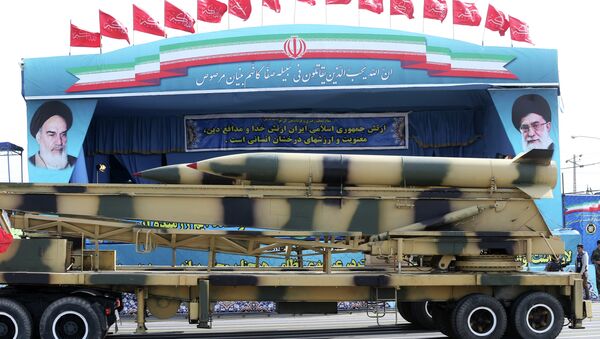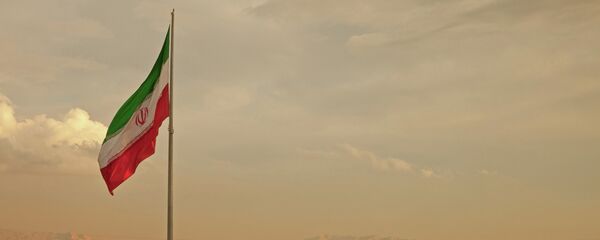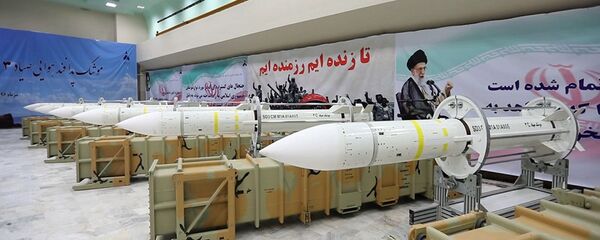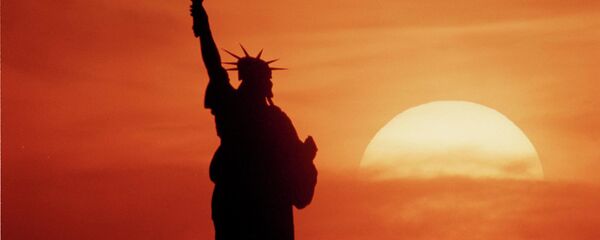New Sanctions
In particular, the law imposes punitive measures against Tehran over the country's ballistic weapons program, detention of US citizens, human rights abuses and terrorist activities across the Middle East and North Africa.
Last week, the US Treasury Department imposed secondary sanctions on six Iranian entities. According to a statement, the restrictions were imposed in response to Iran’s claimed launch of a Simorgh satellite in late-July.
"The new US sanctions against Iran make no sense. Such measures have never worked. Cuba and North Korea are good examples. Apparently, the sanctions are aimed at fueling a new conflict in the Middle East, in order to make more arms deals in the region," RIA Novosti contributor and political commentator Alexander Khrolenko wrote in an analytical piece.
Meanwhile, Tehran has prepared a list of 16 counter-measures. According to Iranian Deputy Foreign Minister Abbas Araghchi, some of them will relate to modernization in the Iranian military.
Araghchi also said that Tehran must give an appropriate response to the actions of the United States as they negatively affect implementation of the 2015 Joint Comprehensive Plan of Actions (JCPOA).
Two Forces, One Purpose
Khrolenko suggested that Tehran will continue to bet on his military potential in order to prevent the US from aggression.
Global Firepower recently placed the Iranian armed forces 21st on its global military ranking, higher than, for example, North Korea and Saudi Arabia.
The Iranian military is over 530,000 strong, with 400,000 in reserve. The largest branch of the Iranian military is the ground forces, which number 350,000 personnel. They have 1,616 tanks, 320 self-propelled howitzers and 2,000 towed artillery systems.
The Iranian Navy has 398 vessels, including five frigates, 33 submarines and 230 patrol vessels and boats. The Iranian Air Force operates 477 planes and helicopters.
"In military terms, Iran would be a hard nut to crack for the US, not even mentioning the Iranian missile program. Saudi Arabia, Washington’s main ally in the Middle East, could rival Iran only in a coalition with its neighbors," Khrolenko wrote.
Both structures have similar purposes and work closely together.
"Possibly, such duplication is expected to enhance the capability of the Iranian military and promote competition between the branches. For the potential enemy, dealing with such a double force may get unpredictable," Khrolenko suggested.
Mistaken Policy
According to the author, Washington’s policy of portraying Tehran as a sponsor of global terrorism is not only absurd but also very dangerous. Many in the US know that, but Congress continues to pursue its geopolitical ambitions and the Trump team can do nothing to stop it.
"But it is not only about immediate political and economic gains. Washington’s hostility towards Iran dates back to the epoch of the 1979 Islamic Revolution. The Revolution came 25 years after the CIA and the British intelligence toppled the democratically elected government to keep control over the Iranian oil industry. This insult still haunts Washington," the article reads.
Nevertheless, according to Khrolenko, any attempt to resolve a complicated conflict with sanctions and military threats is a mistake. In the case of Iran, the US policy is likely to face an insurmountable obstacle.
A recent article in The American Conservative reads, "The United States and its allies have imposed ever-tightening sanctions on North Korea to force that country to give up its nuclear weapons and ballistic missile programs. Pyongyang’s repeated nuclear tests and its recent launches of an intercontinental ballistic missile demonstrate the utter futility of the sanctions strategy."








